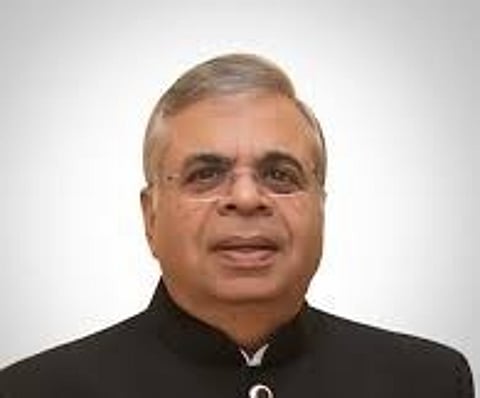

MUMBAI: Ashok Hinduja, the chairman of IndusInd International Holding, the holding company of the crisis-hit IndusInd Bank has promised to infuse capital if needed and also has expressed confidence in the bank management led by chief executive Sumant Kathpalia.
The group chairman said the management has handled other problems quite well over past many months and that the current probelm of a charge of Rs 1,500 crore hit on the forex derivatives book will also get resolved.
During his earlier interaction in-the morning Hinduja did not offer capital infusion but after the stock tanked 26 percent wipping off Rs 18,000 crore of the stall lock value he came back with full support to the bank.
“Our financials remain healthy, and it will be fully supported should any capital requirement arise. The impact of ₹1,600 crore is not much, “Hinduja told business channel CNBC TV-18, on Tuesday .
On Monday, IndusInd bank informed the exchanges that it may take a hit of 2.5 percent in networth as of December 2024 quarter due to some discrepancies it has seen in the forex derivatives and the resultant adjustments it will have to be made.
“Shareholders shouldn't panic. These are normal routine problems. I understand their concern is over why they were not informed earlier. Banking businesses are based on integrity and trust," Hinduja said, adding the promoter group has strong trust on the bank's board and the management.
“We have seen IndusInd Bank for the last 30 years. It has seen various problems. Those have been handled properly. This problem will also get resolved," he said while noting that the bank's financial numbers are very strong.
“I think general reserves cannot be touched, and we’ll have to take it to the P&L,” Kathpalia, whose request for a three year appointment was rejected by the RBI last week by allowing only a one year re-appointment told analysts earlier in the day. This is a serious messaging by the central bank to the board of the bank as last time instead of the board approval for a three years second tenure, the regulator had allowed only a two year term.
Hinduja based his optimism to the fact that the accounting goof up was not identified by the auditor but by the management itself.
“I believe that Kathpalia will have fair answers on this issue. So far there have been no margin calls on our pledged shares. The promoters' pockets are very strong,” he said.
However bankers privately say this can further complicate their efforts to mobilise deposits which anyways have been moving away from banks for quite some time now as this further erodes public trust in banks. The crisis also has come to light at a time when banks needs the low cost public funds the most.
"Already there is a lot of difficulty in garnering deposits and with the Indusind Bank issue playing out, we fear this is only going to get more difficult, “ a senior public sector bank official said.
A private banker compared the IndusInd Bank issue to the way that Yes Bank crisis played out, not in terms of the magnitude but timing— Yes Bank went belly up in March 2020 when the Reserve Bank sacked its management led by cofounder Rana Kapoor.
Kathpalia attributed the potential loss to derivative instruments used to manage foreign currency exposure from international deposits and borrowings. He added that the hedging instruments are used by the balance sheet management desk, which is also the bank’s asset-liability mismatch management desk.
He said the problem came to light after an internal review of its derivative portfolio uncovered a potential 2.35 percent hit to its networth, which stood at around Rs 62,000 crore as of March 2024.
The review was undertaken following RBI’s directions on investment portfolio of lenders, issued in September 2023, relating to the other asset and other liabilities accounts of the portfolio in these account balances.
“Our detailed internal review has estimated an adverse impact of approximately 2.35 percent of our net worth as of December 2024. The bank has also, in parallel, appointed a reputed external agency to independently review and validate the internal findings,” the bank statement said.
However, the lender said a final report from the external agency is awaited, based on which the bank will appropriately consider any resultant impact in its financial statements. It also reassured investors that its profitability and capital adequacy remain healthy to absorb this one-time impact.
Kathpalia said the closure of the external agency review is expected by the month end.
Further, he said the bank would make external trades with counterparties to hedge the entire balance sheet.
“We now only do external trades with counterparties, market counterparties, for hedging our entire balance sheet,” Kathpalia told the analysts.
He further said effective April 1, the bank can confirm that there’ll be no internal trades in the book.
“We have not entered into any internal trades. The internal trades that were there prior to that period, have been unwound” in accordance with mark-to-market valuations, the bank said.